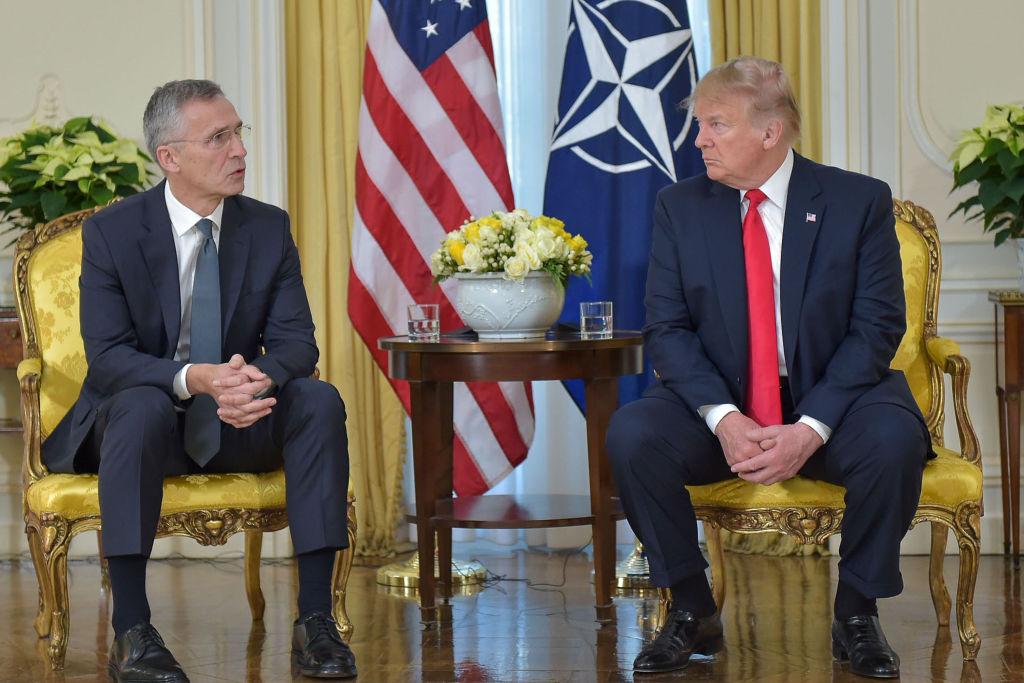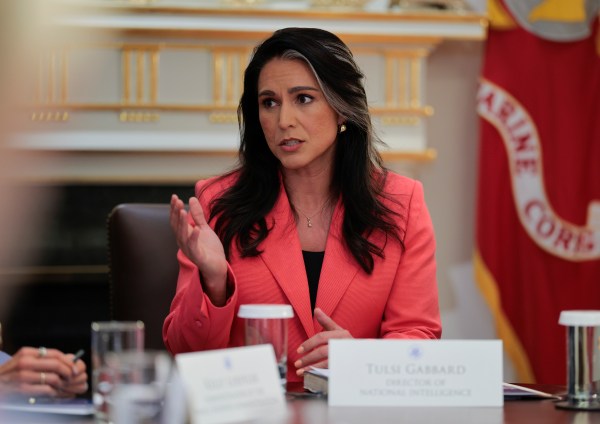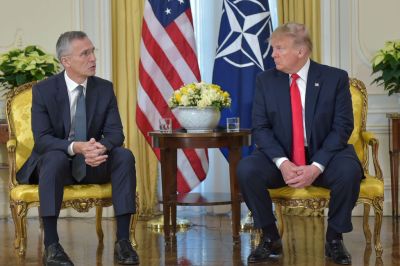Russia’s invasion has reinvigorated the North Atlantic Treaty Organization, and President Joe Biden has reaffirmed repeatedly his “ironclad” commitment to the alliance. Yet former President Donald Trump threatened to withdraw from the treaty multiple times during his presidency, and it’s possible he could make a serious effort to leave if he is reelected.
With that stark reality in mind, the Senate last week adopted an amendment that would require congressional approval for a president to withdraw from the North Atlantic Treaty Organization (NATO). But it’s unclear how effective the legislation would be—and if it will even remain in the final version of the National Defense Authorization Act for fiscal year 2024 (NDAA).
The president’s authority.
Under a conventional understanding of current law, the president has the authority to withdraw from international accords such as the North Atlantic Treaty without congressional approval: Article II of the Constitution requires the support of at least two-thirds of the Senate to make treaties, but not to break them.
Some legal scholars have argued that this is a misinterpretation of the Constitution—which does not explicitly grant the president such power—but U.S. presidents have exercised this unilateral authority many times throughout history, notably when former President George W. Bush withdrew from the Anti-Ballistic Missile Treaty with Russia in 2002.
The issue went to the Supreme Court in 1979, when former Arizona Sen. Barry Goldwater challenged former President Jimmy Carter’s right to terminate the Sino-American Mutual Defense Treaty without the agreement of Congress. The court dismissed the case, arguing that since Congress had not taken official action contesting the executive branch, it did not meet the standards for judicial review. But Justice Lewis Powell Jr. wrote in his concurring opinion that the question itself did not not necessarily fall outside of the court’s jurisdiction, leaving the possibility of future challenges open.
The new legislation.
The amendment the Senate passed last week, originally introduced in 2018 by Virginia Sen. Tim Kaine and Florida Sen. Marco Rubio, would require an act of Congress or the approval of two-thirds of the Senate for the president to withdraw from NATO. Section 6 of the measure says the specific mention of NATO does not implicitly authorize the president to terminate any other treaty without congressional approval.
The Senate approved the amendment 65-28, but the provision might not make it to the final version of the NDAA, which requires the House and Senate to come to agree on a single bill. Giselle Donnelly, a senior fellow at American Enterprise Institute, tells The Dispatch that there is a good chance that the amendment will make the final NDAA, but adds that the House’s version, which includes several partisan provisions restricting the use of military funds for abortions and surgeries for transgender individuals, is unusually controversial and could complicate the process. “This year’s conference is going to be more unpredictable—and just weird—than normal conferences,” Donnelly says.
Many view the bill as a preemptive move to block possible future action by Trump, who has routinely criticized America’s NATO allies as freeriders. Aides allege that Trump privately floated the idea of withdrawal many times during his presidency, and at a rally in 2018 he said he would withdraw from NATO if its members failed to spend 2 percent of gross domestic product on defense, a pledge every country in the alliance made nearly a decade ago. (Currently only seven of the alliance’s 31 members meet that threshold, up from five of 27 when Trump took office.)
David Scheffer, a senior fellow at the Council on Foreign Relations, tells The Dispatch that if Trump wins a second term, he may leverage the threat of leaving to gain concessions from other NATO countries (rather than leave entirely).
The relationship between Trump’s words and his actual policy is “hard to predict,” Donnelly admits, though it’s reasonable to think that Trump might make a serious effort to withdraw from NATO if elected again: “You can understand why people want to put guardrails in place.”
If the bill becomes law, Trump or a different future president may decide to withdraw from NATO without congressional approval anyway, in which case Congress would likely take the issue to the Supreme Court. The legislation doesn’t guarantee a congressional victory there, but the question of executive authority deserves re-examination, Michael O’Hanlon, a senior fellow at the Brookings Institution, tells The Dispatch.
“I don’t think anyone in the Senate asked the Supreme Court of that day to decide about whether Bush in fact had the authority” to terminate the Anti-Ballistic Missile Treaty unilaterally, O’Hanlon says. “In that regard, fresh attention to this issue is warranted.”






Please note that we at The Dispatch hold ourselves, our work, and our commenters to a higher standard than other places on the internet. We welcome comments that foster genuine debate or discussion—including comments critical of us or our work—but responses that include ad hominem attacks on fellow Dispatch members or are intended to stoke fear and anger may be moderated.
With your membership, you only have the ability to comment on The Morning Dispatch articles. Consider upgrading to join the conversation everywhere.